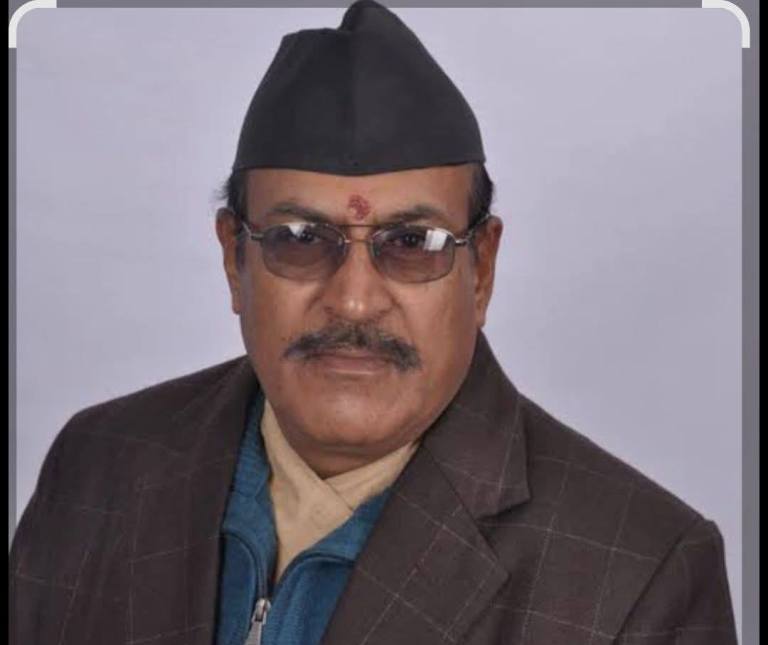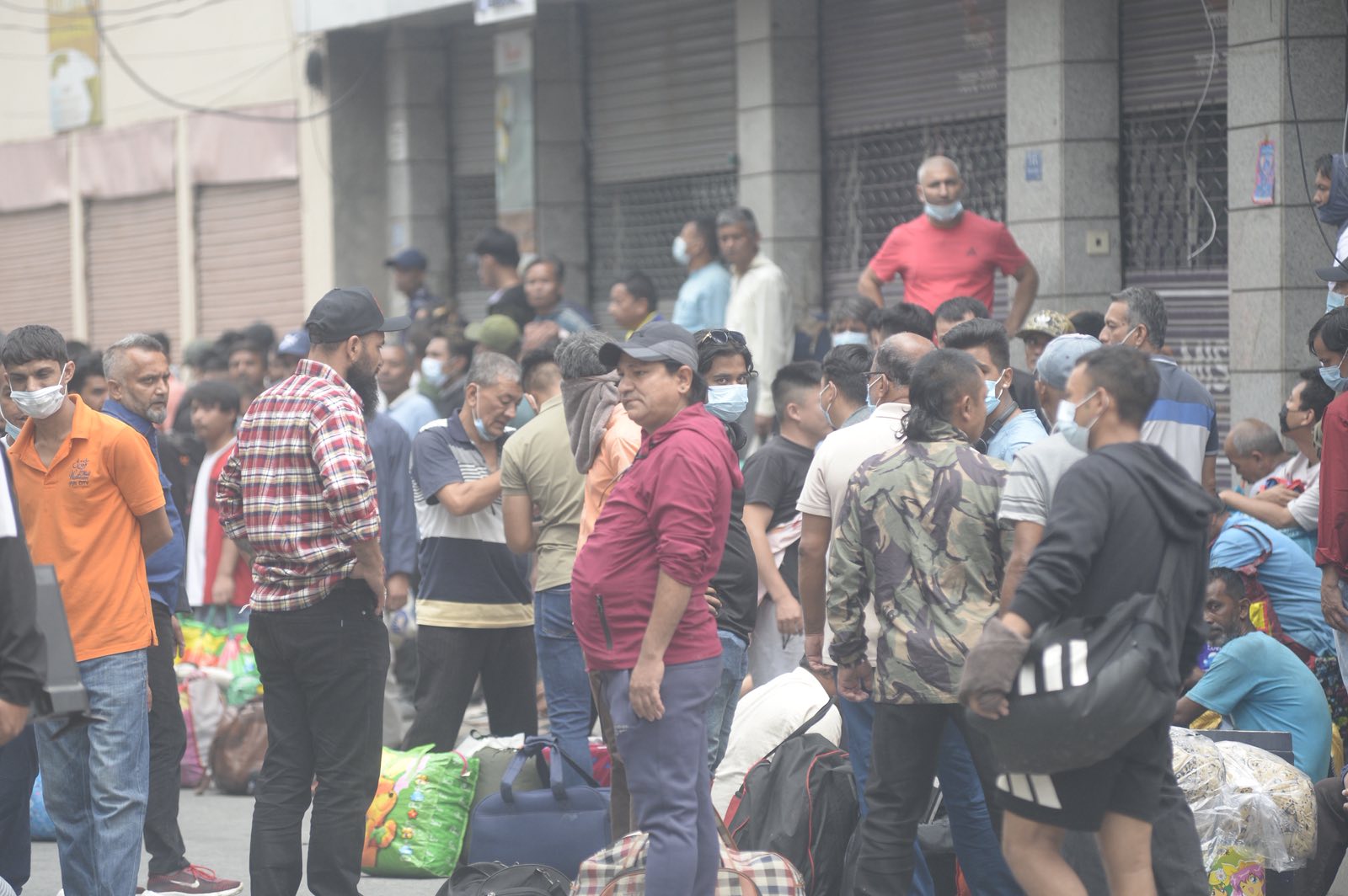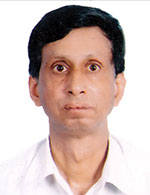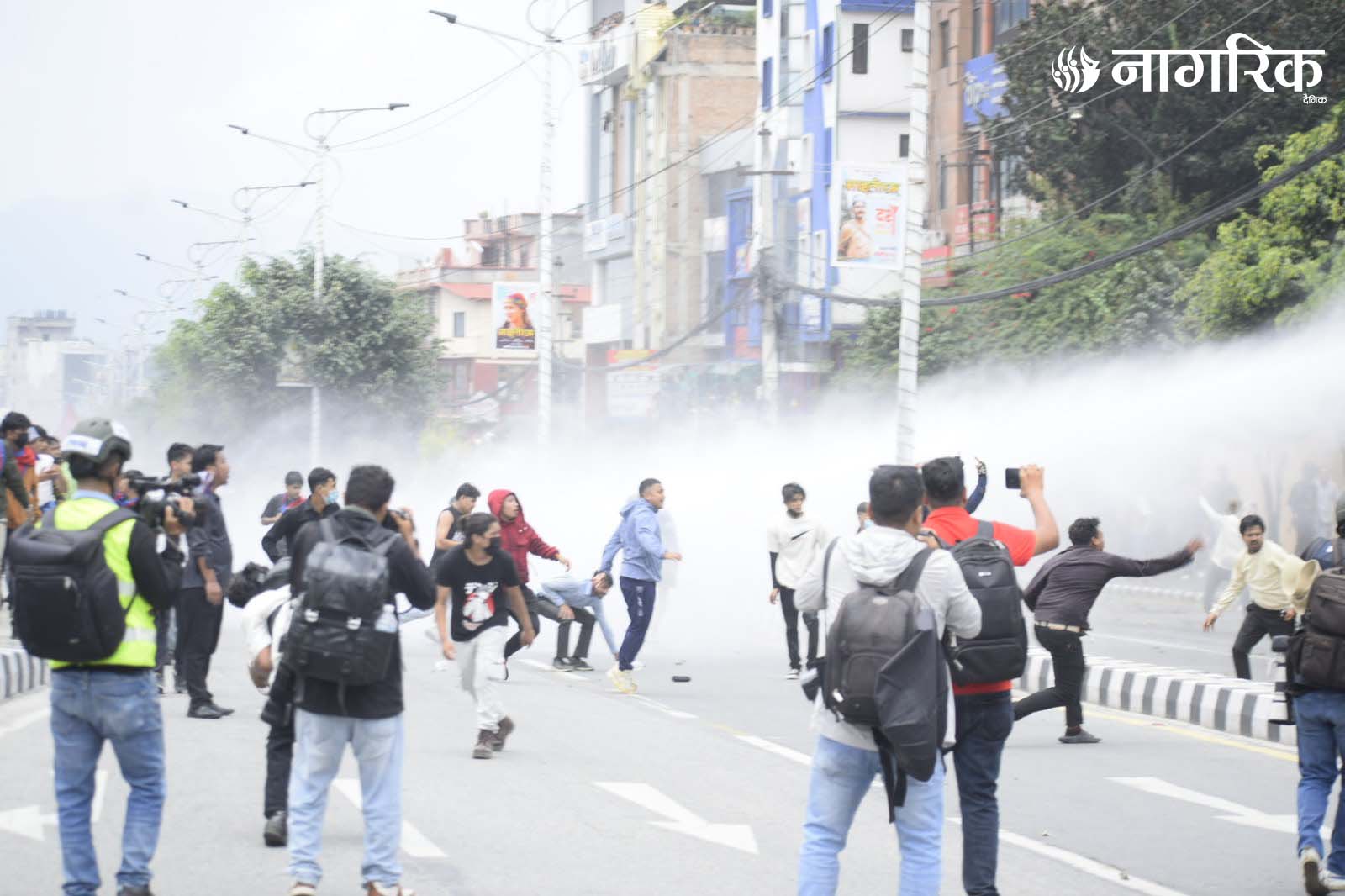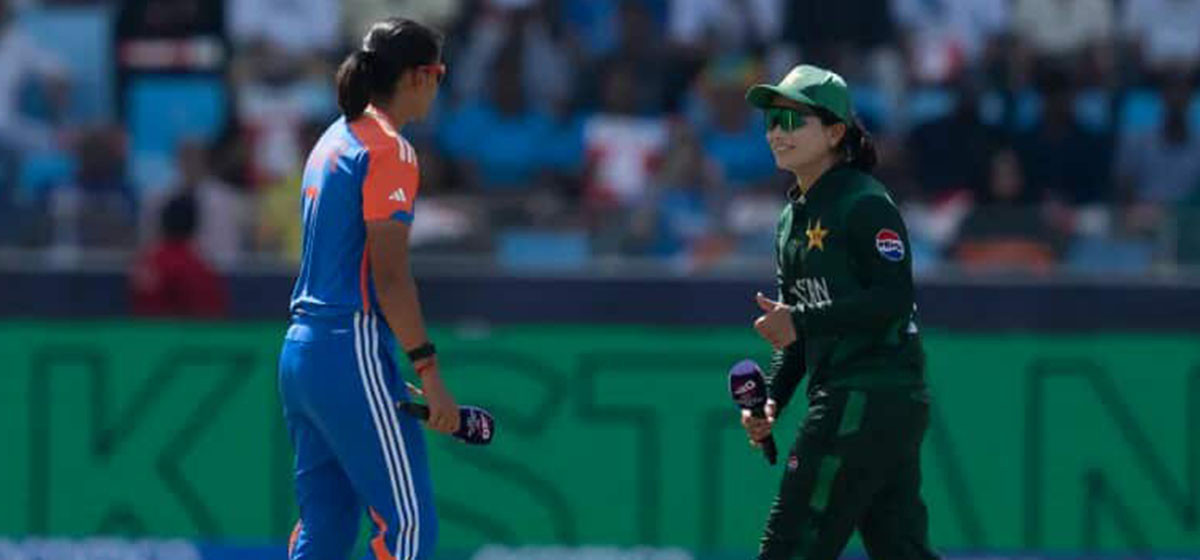UN Assistant Secretary General and UNDP Assistant Administrator Kanni Wignaraja is currently in Nepal to discuss UNDP's ongoing and future collaboration with the Government of Nepal, development partners and stakeholders to firmly anchor the UN agency's next Five-year Country Program (2023-2027). The UNDP’s Country Program aims at supporting Nepal to tackle the impacts of climate change and contribute to the long-term sustainable development of Nepal. On the sideline of her marathon meetings and other engagements, Republica's Kosh Raj Koirala talked to her to understand the UNDP's priorities, support measures for the countries that are hit hard by the impact of climate change and other concurrent issues that UNDP is working on. Excerpts:
You have just visited Nepal and met with key officials. What is your observation of Nepal’s current situation when it comes to the impacts of climate change? What are the opportunities this offers to Nepal in terms of climate negotiation?
Sometimes, you have the good grace of geography and sometimes, it can be a difficult burden to bear. So for me, Nepal is the guardian of this range of mountains. As long as these mountains are healthy and doing well, the guardian is doing well. But when they are hurt, it is not because of the actions of the guardian. It’s a global and regional issue because Nepal hardly emits any carbon. But I would say two small countries – even though the Hindu Kush Himalaya range goes through several countries, including parts of Myanmar – Nepal and Bhutan have been like the two guardians of the range if you think about the highest altitude and where they sit.
These are also two of our smallest emitters. So, this is where the opportunity comes from having to be an even stronger, more powerful voice. In all global and international forums, Nepal's voice on being the protector of this range has to be even more vocal. The opportunity is that this country can't bear the cost of looking after these mountains by itself. So, how do you use this guardianship to access more climate finance? If you think about the mountains as a global public good, the rest of the world, particularly the larger emitting countries, should be looking to see how we can support Nepal to play its role. From an opportunity point of view, what I hope is that Nepal's leadership steps up its demand to say: “Ok, we will take on this role. It's a responsibility but it's not ours alone to bear. So, you have to come in to help us with this.”
What can these guardians of glaciers - countries like Nepal and Bhutan - do to ensure energy security in the region?
Both countries rely heavily on hydro. This is a very bankable resource. This is fine for the next 10 to 15 years, which, in the history of a country, is a very short time. It's amazing what Nepal has done to put hydro at the center and harness it. If you are a net exporter of hydro, it helps your balance of payments, particularly with India. But you have to already have a Plan B because 15 years will go by in a flash. To me, Plan B cannot be about a non-renewable energy resource. So, what are the other renewable energy resources to balance your risk and have solar at your fingertips, to have wind? Solar and wind energy technology are getting cheaper.
Wind energy is very powerful in two places: islands and mountainous areas. For example, in Sri Lanka, throughout the year, you have consistent wind energy which, when combined with solar and hydro,becomes a good mix to ensure energy security. In Nepal, there are two or three places I'm told that can provide quite a bit of wind energy.
And the other point about Nepal is that in the next 15 years, with a net export, it helps your trade balance with India. That's a big plus because that allows you to get back some fiscal space.
What could be done with that fiscal space?
I had a very interesting conversation today with mayors and deputy mayors, which revealed a very different story. What surprised me is that because of the way the countries’ systems have developed – or in this case not developed – there isn't a uniform social protection system that is based on vulnerability and poverty. There are very specific insurance systems for certain disabilities. In other countries, if you're retired from the armed forces, you have a particular pension system. But if you fall into extreme poverty, plus all the other vulnerabilities that can hit you when you're very poor, there isn't a consistent social security system.
When I asked about that, the mayors and deputy mayors said that one thing they appreciate is the UNDP experimenting with a Temporary Basic Income system. It's very small at the moment, as it’s a pilot. But what has it done? The UNDP had to go out and make sure that the system was being implemented without being politicized. I couldn't come and ask the mayor who they think should get the temporary basic income. Because they will give one list while another man will give another list. So, a university conducted a whole data survey, household by household. For the first time, that type of information gives you a vulnerability mapping of poor households in the country or in one locality. If a country has fiscal space and puts it into a social security system to bring up the poorest households, then you're starting to move towards a middle class.You will see enterprises, education, and health indicators all going up. It's interesting how energy security is linked immediately to the prosperity of the population.
World Vlogging Challenge to raise awareness on impact of climat...

How is UNDP supporting countries in the Himalayan region on the climate agenda?
It's very different for mountainous regions, particularly landlocked countries, and it's very different if you're a Pacific Island. But one common issue that is concerning is that the countries most impacted by climate change are the ones that have the least to do with it. They are the lowest emitters but they're also often politically not the strongest lobbies.
So, one of the things that is very important for UNDP is to bring the voice of these countries into these big global forums and help to project and advocate for their issues, bring them together. That is the kind of change you need to see.
Nepal has very ambitious NDCs (Nationally Determined Contributions) but what's the point if it's only Nepal that has that. Its neighbors have to have ambitious NDCs also. That type of climate diplomacy is something that UNDP does a lot to support– providing analytics but also advocating for some policy choices.
The second big area we focus on is to help poorer countries access climate finance because the climate finance market is very complex. You need to build capacity in all these countries to be able to really access climate finance. Behind climate finance have to be bankable projects. If you're an investor, you will be asking what the financial returns are? Why would you as an investor provide the money for Bhutan or Nepal or the Maldives if there aren't bankable projects? Something that we are looking to do more is to help national institutions design bankable projects that are of interest to both multilateral and capital markets and the private sector – who invest in climate finance.
The third big one is to look at the national climate policy, both mitigation and adaptation. Even if a country is a low emitter, strong mitigation and adaptation strategies are critical. Because if we don't change behaviors in our country, just think, one day of hard rain and Kathmandu streets getting flooded. When things like that happen, it hits the economy. It's immediate. So, it is necessary to have mitigation strategies but then,the harder ones are adaptation strategies.
We do a lot of waste management support, removal of plastics, all of that but at the end of the day if we keep producing plastics and we keep dumping plastics, all we're doing is going and picking it up. So, there has to be a more revolutionary change.
When I think of Everest, I think of the powerful visual images that have stuck with me in the last 12 months. One was an image of crowded climbers. The second, and equally disturbing image, was of plastic bottles and bags strewn all over. If you want to climb these mountains, do it the way nature intended it to be done. You've got to protect nature while you are also enjoying and gaining so much from it .
Just like we need a rest once in a while, a mountain needs rest too. You cannot have people climbing these mountains all the time; you have to allow it to regenerate like reefs.
The fact is that we have to think more long term. You might lose one year’s income on that mountain, but you can gain it back through other ways. You give it a break. While nature regenerates, while the trails get solidified again, you let nature take its course. This is what UNDP is doing in the islands and it's what we should be doing with the mountains.
What are your core areas of priority in the region?
I would put two things at the top of the agenda, before the mountains and climate, I would put the people who live around the mountains and downstream from the mountains. Sometimes, we forget that the best policies are made and the best programs are done when you put the person who is hit the hardest at the center of the equation. How does it impact this poor woman, for example? Does she even own assets and land? If she does, can she open a business? Has she gone to school? If you start from there, that concept of not just a person’s well-being but also their sense of identity and sense of justice that they're being treated fairly and that they have a chance. That is the center of everything.
If you're living in very eco-fragile areas, like many mountainous areas, then you've got to look at the equation with what's happening with the climate and then with the environment. So, it's human security with environmental security. These two things for me are the major issues for UNDP and whether that is local or global, this is where we are at.
In the past, Nepal’s graduation from current LDC status was postponed due to shocks such as the major earthquake in 2015 and then the COVID-19 pandemic which led to a sudden drop in GDP from 7% to less than 3% in 2020. How do you think this kind of vulnerability, including climate change, will affect Nepal’s ambition to graduate from an LDC by 2026?
The short answer is that I hope it does not affect Nepal’s ambition. It will shake it, but it should not push the ambition off track. Just from a sense of national identity and national pride, the ambition should not be shaken.
What is shaken is the fact that the global context and the national context to reach certain milestones are going to be hard. But to me, the drive to say by 2026 that we're done with this label. We still might have vulnerabilities and we will still have shocks, but we are not an LDC. Just like a person's identity, when you are told you are lesser than you are, sometimes you start believing it.
A nation is the same. A nation has a life and a soul. We have to start standing up and saying: we're not going to get the same breaks, we're not going to get cheaper money, we're not going to get some of the brakes on tariffs, some of the market competition is going to be tough, our growth scenarios are going to have to be lowered, the pandemic has not gone away. But we have confidence in ourselves and in our nation’s capabilities. So, we're going to invest in our people. We're going to invest in our institutions and we're going to make some good choices for the country. We don't need to be a high middle-income country by tomorrow, but we are certainly on the path.
It's important that there is public awareness raising on this and I have learned a lot from the way Bangladesh is doing it. They're running a social campaign on what it means for Bangladesh to not be in this category. No one has the right to call anyone else least developed anymore. I think part of it was done with a very good intention of giving some countries a break till they moved forward.
How can countries like Nepal and Bhutan collaborate with other countries in the region to tackle the adverse impacts of climate change?
This is absolutely critical. Collaboration mostly has to be through strong diplomatic channels. For Nepal, it has to be with India and China. For one, because of the downstream events, like immediate GLOF events. The danger is imminent there.
The second is that although some things are global, some climatic conditions are regionally localized. Black ice, for example, is a more localized issue but the pollutants are coming from across borders. So, climate diplomacy is going to be critical with the transboundary. And for Nepal to get together with some of the other smaller countries to be part of the negotiation with the big countries will be key – if it can get together with Bangladesh, Bhutan, the Maldives, Sri Lanka - the group that is most impacted by the warming of the sea and the warming of the glaciers.
So, I think it's stronger when there is a coalition of the willing. Climate diplomacy is going to be a critical conversation going forward.
How is UNDP helping these countries, the coalition of the willing, to raise their collective voice?
The way we do it is by raising awareness in each of the countries and calling on them to come together. But the actual negotiation has to be country-led. We can provide analytics and awareness raising in public institutions. We can speak to leaders but finally,when it comes down to it, the leadership of the countries have to agree. They have to put aside all their other political differences because for as long as there are humans on this earth, we will have political differences. If you say we're going to wait for everything else to be solved before we come to talk about climate, this earth will be gone.
Look at how the countries around the Mekong River basin came together because they're all downstream countries. We also saw it around the Tumen River basin where countries came together and negotiated a shared way forward. We will certainly be working globally but in the region, we will be working country by country to promote climate diplomacy.
Despite the fact that Nepal is not contributing to global warming, it is at the receiving end of the problem. What kind of strategy should Nepal take in global climate diplomacy?
If you look at the strategies that countries are adopting already,they are collectively bargaining on some of the targets.To do it one by one is hard, so collective bargaining is a stronger way to go forward. But they're also coming together to look at the access to climate finance.
It's going to take a lot of money to address these issues. If I look at the Pacific islands, one island alone can't negotiate; it's not a big enough scale, but when you come together as the Pacific then you have clout. You know then that you have a much stronger voice. On the adaptation agenda, globally, you have to look much more at how you can change the industry and how you can make more use of modern science and technology to switch production patterns. Otherwise, it's like the cycle of plastic– I buy it, I use it, I throw it, you pick it up and then it just keeps going.
What is your message to Nepal’s leaders, particularly now when they are heading to another general election?
Looking at the coming months, the one hope I have for both the climate agenda and the human security agenda is that things should not change based on politics and political ideology. Some things should just be about national ideology. So, irrespective of what leader, which party, what coalition, something should just be granted by the people for the people, and the leader who comes in chosen by the people becomes the guardian of that agenda. That's what I hope for this country as it goes into national elections, that it stays the course on an ambitious climate agenda and protection or conservation of these amazing mountain ranges for which it has given guardianship.





